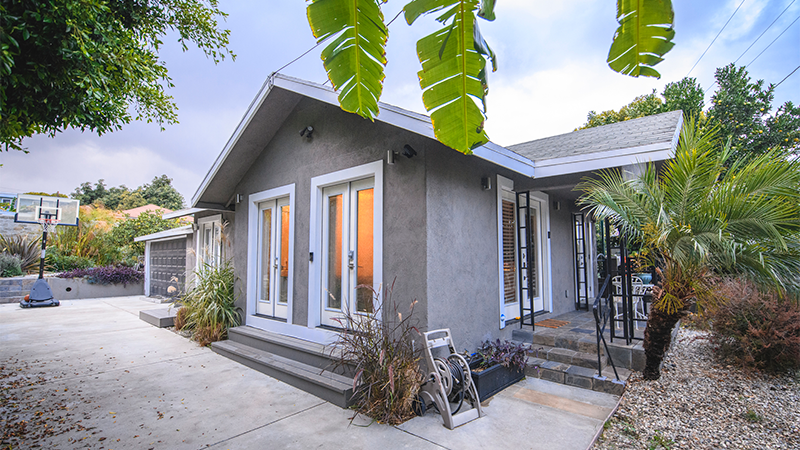Key takeaways
- The best renters insurance companies in California are American Family, Mercury, Nationwide, Lemonade and USAA, according to our research.
- The average cost of renters insurance in California is $177 per year, according to the Insurance Information Institute (Triple-I).
- Californians may want to consider optional earthquake insurance and valuables coverage for high-value items for more robust coverage.
Although it’s not required by law, a renters insurance policy offers significant benefits to those who lease their space — whether it’s a whole house or an apartment. Your landlord’s insurance will not cover damaged or stolen personal belongings, so you will need a renters policy for financial protection in the event of a covered loss. Many landlords even require it. Bankrate’s insurance editorial team took a close look at the market in the Golden State to help you compare renters insurance in California. Our picks for some of the best companies include American Family, Lemonade, Mercury, Nationwide and USAA.
Best renters insurance companies in California
To help you find the best renters insurance companies in California, we analyzed customer satisfaction ratings from the 2024 J.D. Power U.S. Home Insurance Study. We also rounded up each company’s financial strength rating, which indicate its history of paying claims. Lastly, we reviewed available discounts by company in hopes of helping California renters save on coverage. It is important to note, however, that discounts may change, and companies may not advertise all available offers. Talking with a licensed agent or gathering quotes is the best way to get further details and find the best affordable renters insurance for your situation.
Here are the top renters insurance companies in California based on our research:
*This is an estimate based on information available on the carrier’s website. Check with a licensed agent for exact discount availability.
**Not officially ranked by J.D. Power due to eligibility restrictions.
American Family
Best for optional coverages
American Family ranked sixth for renters insurance in the J.D. Power U.S. Home Insurance Study. Its above-average study score may indicate that it takes relationships with policyholders seriously. Besides the standard coverage types, AmFam has optional coverage for pets hurt in a covered loss, home-based businesses, travel protection and identity theft coverage. It also offers a diminishing deductible, which may drop your deductible each renewal after remaining claim-free for the previous policy period.
Pros
- Large number of potential discounts
- Valuable optional coverages
Cons
- Android app rated 3.4 on Google Play
- Only available in 19 states
Learn more: American Family insurance review
Lemonade
Best for fast claims process
Earning a high score in the J.D. Power study, Lemonade may also offer some of the best insurance for apartment or rental home dwellers. It has a separate earthquake policy for Californians and a giveback program, which donates unused premiums to a charity of your choice at the end of each year. Lemonade also features AI-supported claims, which could mean a quick payout in the event of a covered loss.
Pros
- Tech-savvy policyholders may find digital claims process appealing
- A (Exceptional) financial stability per Demotech
Cons
- No AM Best rating
- Minimal discounts listed
Learn more: Lemonade insurance review
Mercury
Best for high-value item owners
Mercury is another option for California renters. This carrier has several discounts that could help keep renters insurance premiums low. Mercury also allows renters to customize their policy with coverage options like workers’ compensation coverage for part-time personal employees, coverage for service lines and home systems, plus cyber and identity theft protection. If you have high-value items, you can schedule them on your Mercury renters insurance policy so they are covered for what they’re worth, too.
Pros
- Large number of potential discounts
- Multiple ways to customize policy
Cons
- Not ranked by J.D. Power for renters insurance
- No online option to file claims
Learn more: Mercury insurance review
Nationwide
Best for customer satisfaction
Nationwide only lists a few discounts on its website, but it offers the option to purchase replacement cost coverage on personal property and add credit card or water backup coverage. For those who can make changes to their rental, like upgrading fixtures or making improvements, Nationwide also offers building additions and alterations coverage.
Pros
- Several discounts on offer
- Long list of optional coverage types
Cons
- Below-average customer satisfaction per J.D. Power
- Cannot file claims online
Learn more: Nationwide insurance review
USAA
Best for military-focused coverage
USAA has a reputation for offering affordable insurance for active-duty military, veterans and qualifying relatives. You may be eligible for several renters insurance discounts to lower your premiums even more. One major benefit is that policyholders get flood and earthquake coverage included, whereas most insurance providers only offer these separate for an additional fee. And if you move abroad or get deployed, overseas renters insurance is available, as well.
Pros
- Includes flood and earthquake coverage
- Exceptional J.D. Power score
Cons
- Limited availability
- Pet damage coverage not available
Learn more: USAA insurance review
Average renters insurance cost in California
The average California renters insurance policy costs $177 per year, according to Triple-I. The average nationwide is $170. Your premium is determined by several factors, including your deductible and coverage limits. Your credit-based insurance score, however, is not a rating factor in California.
Renters in California pay about the same for renters insurance compared to the surrounding states:
| California | Nevada | Oregon | Arizona | |
|---|---|---|---|---|
| Average premium | $177 | $175 | $150 | $160 |
Source: (Triple-I)
Renters insurance coverage options in California
Renters insurance policies typically provide a few basic coverage types, including:
- Personal liability: This type of insurance protects you from the financial implications of lawsuits if someone is injured while on your property and you are found to be negligent. Liability may also pay for medical costs incurred after an accident in your living space. Many insurers offer liability coverage starting at $100,000.
- Personal property: This coverage is central to your policy. It protects your personal belongings from damage or destruction following a covered disaster. Common causes of damage that are included are fire, windstorm, theft, vandalism and the weight of ice, snow or sleet. If you have expensive personal items, such as electronics, artwork or jewelry, you may need an optional rider called a scheduled personal property endorsement to be adequately covered.
- Additional living expenses: If you are unable to live in your home because it has been damaged or destroyed in a covered disaster, this portion of your policy will help pay for your living expenses up to certain limits. This may include hotel costs, meals, pet boarding or moving costs.
- Guest medical expenses: This type of coverage can provide financial assistance if someone else gets injured in your rental property, regardless of who is at fault. This could apply if a friend slips and falls in your bathroom, cuts their hand in your kitchen, etc. The claim would be paid out to the guest, preventing you from having to cover the cost. Limits for this coverage tend to be lower than liability limits, sometimes as low as $1,000.
Before purchasing a policy, you may want to understand what is covered by renters insurance. For example, luxury or high-value items like fine jewelry, art and expensive electronics may have predetermined limits. Unless you add coverage, you could be underinsured for those items.
Also, keep in mind that most renters insurance policies do not cover your belongings if they get damaged in an earthquake or flood. For example, if a bookshelf falls on your laptop during an earthquake, you would likely be responsible for paying to repair or replace the laptop. To avoid that, California residents may be able to purchase separate earthquake insurance.
Frequently asked questions
Read the full article here
















